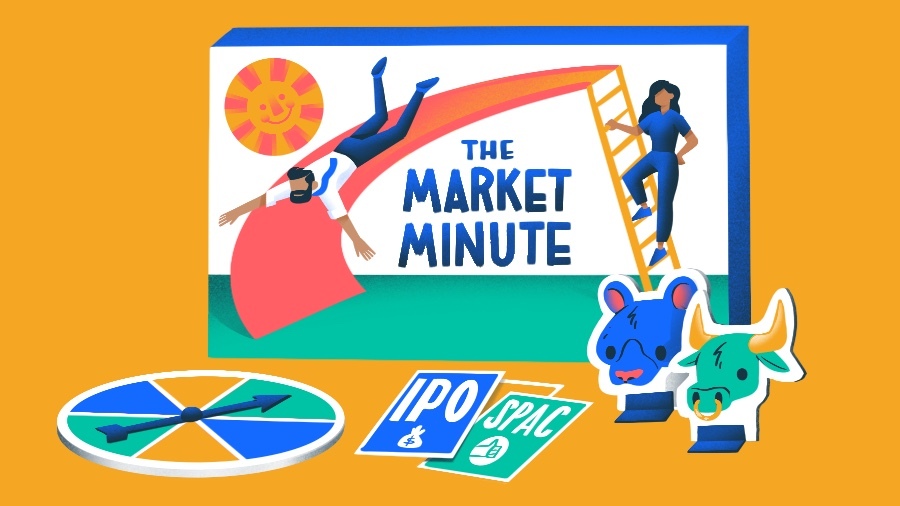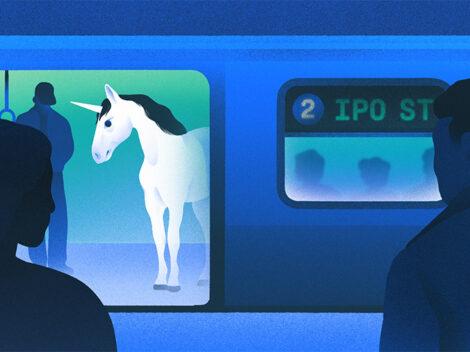Volatility in the public stock markets is setting the private markets up for uncertainty this year. The ongoing turmoil on Wall Street could affect not only the IPO pipeline, but the valuations of late-stage startups that have no other choice than to raise money from private investors.
Search less. Close more.
Grow your revenue with all-in-one prospecting solutions powered by the leader in private-company data.
While private investors will still put money into late-stage companies, they will likely be more disciplined about valuations, according to investors and public market watchers who spoke with Crunchbase News.
“In general, the public market and the volatile nature of that does not create a good environment for the private markets in terms of valuation,” said Himalaya Rao, managing director of the seed-stage fund Black Founders Matter. While her fund focuses on early-stage startups, several of its portfolio companies are at the stage where they’re positioned for an acquisition.
IPO and valuation impacts
The year hasn’t been off to a great start for the public markets. While stocks briefly showed signs of recovery earlier this week, they fell again Thursday after Facebook parent company Meta shed $250 billion in market value in a single day following a quarterly earnings report that didn’t impress investors. A day earlier, fintech giant PayPal saw $50 billion of its market value wiped out after delivering disappointing guidance.
Concerns about inflation and the Federal Reserve potentially raising interest rates have also contributed to volatility in the market.
Well-established startups—think companies like Stripe—will likely stay private in these conditions because they can get additional funding to wait out the downturn, though that funding may come at “more reasonable valuations,” according to Patrick Healey, founder of Caliber Financial Partners.
- Pro list: The Crunchbase Unicorn Leaderboard
While established companies could go public in this market environment, investment bankers would likely advise against it, given the volatility and selloff that’s occurring, according to Healey.
“(Those types of companies) will have no trouble getting private equity money,” he said, though “maybe not at the same valuation that the public markets were assigning the last couple of years.”
Private equity investors tend to be more disciplined than public investors, Healey said, and now they don’t have the competition of a robust public market.
“When you remove one of the components of the demand, the private equity investors may be more inclined to be more disciplined,” Healey said. “A lot of them like to invest at late-stage.”
Late-stage companies are affected more by the activity of the public markets because they’re closer to reaching that stage. Additionally, many of the biggest declines in the public markets have been in the areas most relevant to late-stage ventures–think high-growth, high trading multiple tech businesses, said Morgan Flager, managing partner of Silverton Partners.
Rao noted that her firm is still going full-speed ahead with investing because early-stage companies and companies that aren’t looking to raise money or be acquired are doing well and scooping up talent looking to join a startup.
M&A could be affected
In addition to lower valuations, companies that hope to be acquired may face other challenges, Rao said. Corporate venture capital arms and corporations are less likely to want to make acquisitions when the market is down. When their stock is up, they’ll look at a slew of companies, but when shares are down they tend to be more selective.
“Now companies have to be stellar and potentially have lower valuations because the buy side has more power,” Rao said.
Despite the turbulence in the public markets, it’s probably healthy for the market now to correct itself now, as opposed to a bigger crash later down the line.
“At current levels, I think what’s going on in the public markets is healthy,” Flager said. “You saw this huge run up in the public and private markets in the last 18 to 20 months. It kind of reached a spot where it was quasi-unsustainable…I think what’s gone on is more of an incremental adjustment, letting the air a bit out of the balloon without it bursting.”
Illustration: Dom Guzman

Stay up to date with recent funding rounds, acquisitions, and more with the Crunchbase Daily.




![Illustration of a guy watering plants with a blocked hose - Global [Dom Guzman]](https://news.crunchbase.com/wp-content/uploads/quarterly-global-3-300x168.jpg)
67.1K Followers